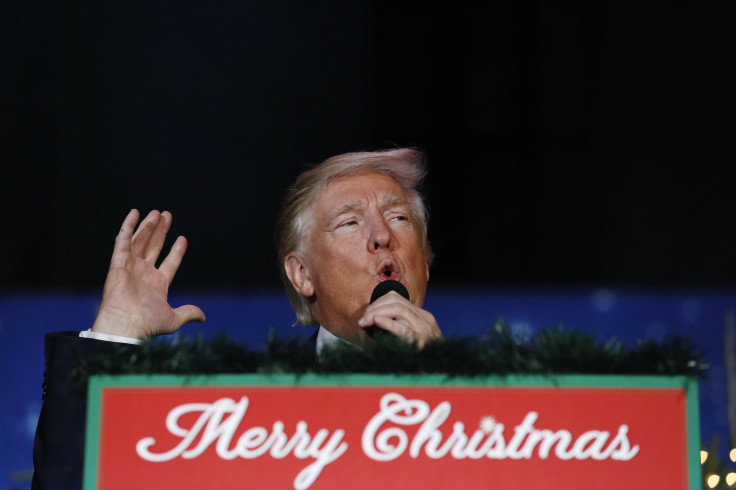War On Christmas? US Divided On 'Merry Christmas' vs. 'Happy Holidays' Greeting

Many across the United States will likely be hoping that this year, perhaps more than any other, Christmas can offer a welcome respite from the divisiveness that has prevailed during the recent presidential election campaign. However, research published on Monday indicated that Americans are similarly split on just how to greet people this holiday season, with political affiliation playing the biggest determining role.
Democrats were more than twice as likely as Republicans to say that stores should use more general greetings, such as “Happy Holidays” or “Seasons Greetings,” rather than the more religiously exclusive “Merry Christmas.”
Of those asked by the Public Religion Research Institute, nearly two-thirds (66 percent) of Democrats said that more general greetings should be used “out of respect for people of different faiths.” That number was just 28 percent for those who identified as Republican. Political independents were split fairly evenly, with 48 percent preferring “Merry Christmas,” to 44 percent opting for “Happy Holidays.”
Taken as a whole, Americans were divided almost down the middle. Forty-seven percent prefer a more general greeting, with 46 percent are in favor of a one more in line with the Christian tradition of the holiday.
The subject of which greeting to use has become a hot-button issue in recent years. Leading Republicans have cited the rise in “Happy Holidays” or “Seasons Greetings” as part of what they claim is a “War on Christmas.” Indeed, while on the campaign trail, President-elect Donald Trump pledged that everyone will again be saying “Merry Christmas” a lot. It was a theme that he returned to during his “Thank You Tour,” while in Wisconsin last week.
“When I started 18 months ago, I told my first crowd in Wisconsin that we are going to come back here some day and we are going to say ‘Merry Christmas’ again,” he said. “Merry Christmas. So, Merry Christmas everyone. Happy New Year, but Merry Christmas.”
Yet the numbers show that support for “Merry Christmas” has actually increased in recent years. The same survey in 2010 indicated that 49 percent favored “Happy Holidays” or “Seasons Greetings” to 43 percent against.
Still, the partisan schism is growing. While the percentage of Republicans stating that Christmas is a strongly religious holiday has remained unmoved at 60 percent since 2005, for Democrats that number has fallen from 46 percent to just 32 percent in this year’s survey.
As well as political, there is also a divide on generational grounds. Only 32 percent of young adults indicated that Christmas was strongly religious for them, compared to 52 percent of seniors.
© Copyright IBTimes 2024. All rights reserved.





















